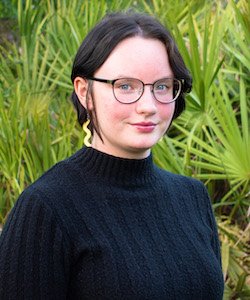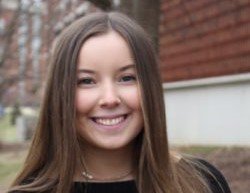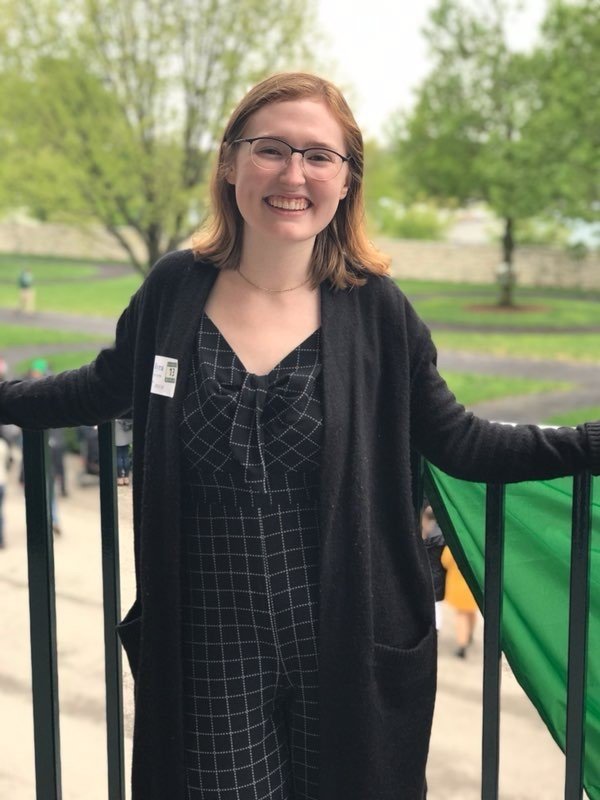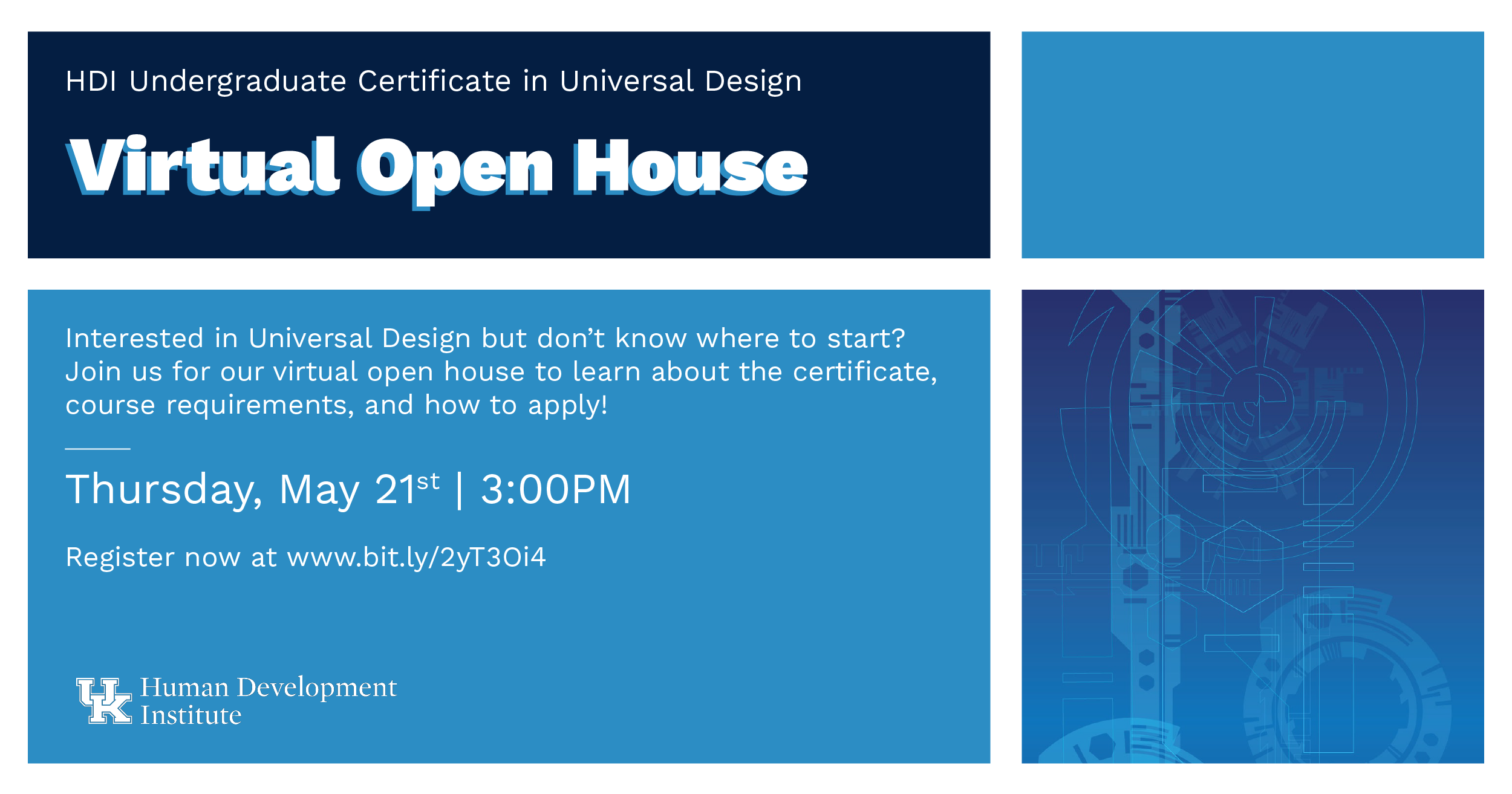Tag: Universal Design Certificate Program
-

Thompson Earns Universal Design Certificate
Elizabeth Thompson has been involved with HDI for a while, but she’s always ready for an opportunity to learn more. Thompson, who works with the RETAIN project in Administrative Support, […]
-

Undergraduate Certificate in Universal Design Student Spotlight: Victoria Cabral
By: Amanda Corbin Victoria Cabral is a busy junior with a double major in Spanish and Computer Science who also started coursework in the Undergraduate Certificate in Universal Design (UD) […]
-

Haley Potter Awarded Burberry Award
The University of Kentucky (UK) Human Development Institute (HDI) has awarded the prestigious Paul Kevin Burberry Award to Haley Potter. Haley is a full-time HDI staff member working across multiple […]
-

Universal Design Student Spotlight: Ellie Fahey
UK junior Ellie Fahey was looking for a note to get out of class when she happened upon the Human Development Institute’s Universal Design Program. Ellie explained, “I got a […]
-

Universal Design Student Spotlight: Kyra Seevers
Kyra Seevers, who describes herself as a lifelong learner, is a senior at the University of Kentucky majoring in Computer Science with a minor in Sociology. She works with the […]
-

HDI Hosts Virtual Open House for the Undergraduate Certificate in Universal Design
The University of Kentucky Human Development Institute invites current and prospective students, staff, and faculty to a Virtual Open House to learn about the Undergraduate Certificate in Universal Design. Universal […]
-

HDI Student Planning Still We Rise Banquet to Honor Resiliency of Fellow UK Students
Last year, as part of their studies in the Human Development Institute’s (HDI) Universal Design Certificate Program, two undergraduate students, Lauren Brown and Kennedy Guess, wrote and received an Inclusive […]
